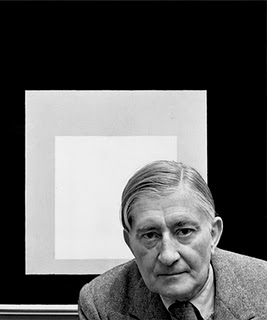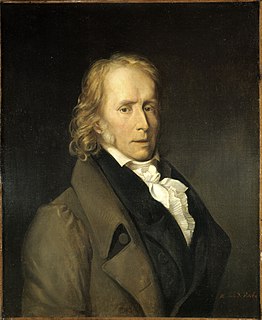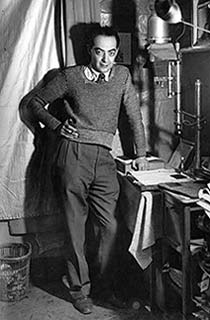A Quote by Josef Albers
The purpose of art is to re-present nature, not represent it.
Related Quotes
art is the most general condition of the Past in the present. ... Perhaps no work of art is art. It can only become art, when it is part of the past. In this normative sense, a 'contemporary' work of art would be a contradiction - except so far as we can, in the present, assimilate the present to the past.
In today's climate in our country, which is sickened with the pollution of pollution, threatened with the prominence of AIDS, riddled with burgeoning racism, rife with growing huddles of the homeless, we need art and we need art in all forms. We need all methods of art to be present, everywhere present, and all the time present.
The secret of Greek Art is its imitation of nature even to the minutest details; whereas the secret of Indian Art is to represent the ideal. The energy of the Greek painter is spent in perhaps painting a piece of flesh, and he is so successful that a dog is deluded into taking it to be a real bit of meat and so goes to bite it. Now, what glory is there in merely imitating nature? Why not place an actual bit of flesh before the dog?
Every little thing has a purpose, at the same time, it has no purpose because this whole thing is a game. It is the existence which is total, beyond purpose. So you can say, virtually there is no purpose. If at all you have to pin down to a purpose then the purpose of nature is to take you to the Source, is to remind you of the Source, connect you to your Source.
Art is the microscope of the mind, which sharpens the wit as the other does the sight; and converts every object into a little universe in itself. Art may be said to draw aside the veil from nature. To those who are perfectly unskilled in the practice, unimbued with the principles of art, most objects present only a confused mass.
The task of art is to take hold of the shining, the radiance, the manifestation, of that which as spirit weaves and lives throughout the world. All genuine art seeks the spirit. Even when art wishes to represent the ugly, the disagreeable, it is concerned, not with the sensory - disagreeable as such, but with the spiritual which proclaims its nature in the midst of unpleasantness. If the spiritual shines through the ugly, even the ugly becomes beautiful. In art it is upon a relation to the spiritual that beauty depends.
If being an anti-art artist is difficult, being an anti-art art historian is a hard position indeed. His doctrinal revolutionism brings forth nothing new in art but reenacts upheavals on the symbolic plane of language. It provides the consoling belief that overthrows are occurring as in the past, that barriers to creation are being surmounted, and that art is pursuing a radical purpose, even if it is only the purpose of doing away with itself.







































